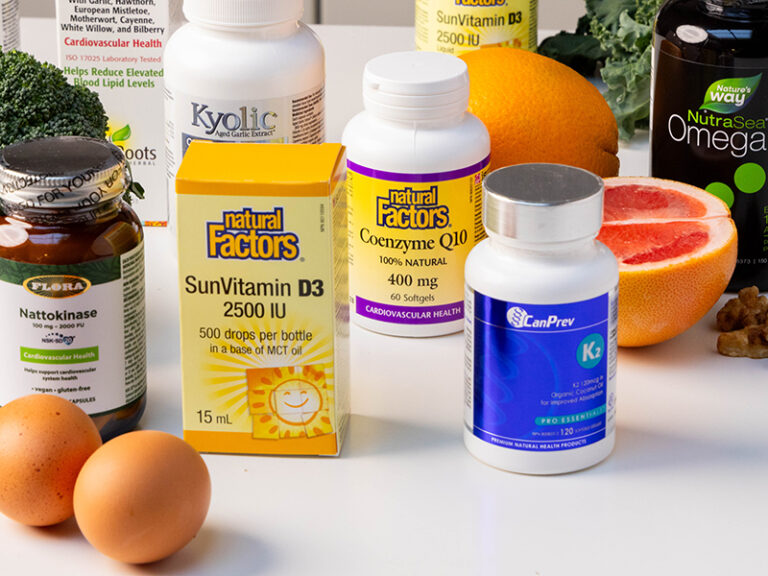
Heart health is fundamental to overall wellness, and maintaining a healthy cardiovascular system requires a balanced diet, regular exercise, and stress management. However, certain supplements can play a supportive role in promoting heart health. Here, we explore six essential supplements known for their cardiovascular benefits, their uses, and key research-backed health claims.
Omega-3 Fatty Acids
What It Does:
Omega-3 fatty acids, particularly EPA (eicosapentaenoic acid) and DHA (docosahexaenoic acid), are essential fats with heart-protective effects. They help reduce inflammation, lower triglyceride levels, and improve arterial function.
How to Use:
Omega-3s are typically consumed through fish oil or algae-based supplements in doses of 1,000–2,000 mg daily.
Benefits:
Evidence:
Studies have shown that omega-3 supplementation reduces the risk of coronary heart disease and sudden cardiac death (1). The American Heart Association recommends omega-3s as part of a heart-healthy diet.
Coenzyme Q10 (CoQ10) and Ubiquinol
What It Does:
CoQ10 is a fat-soluble compound that plays a vital role in energy production and acts as an antioxidant. Ubiquinol is the active, bioavailable form of CoQ10.
How to Use:
Typical dosages range from 100–300 mg daily, depending on the form and health needs.
Benefits:
Ubiquinol vs. CoQ10:
Evidence:
Research suggests CoQ10 supplementation improves endothelial function, reduces blood pressure, and enhances mitochondrial activity (2).
Magnesium
What It Does:
Magnesium is involved in over 300 biochemical reactions, including those that regulate blood pressure, nerve function, and muscle contraction. It helps maintain a steady heartbeat and supports arterial health.
Best Types for Heart Health:
How to Use:
Daily doses range from 200–400 mg, depending on dietary intake and individual needs.
Evidence:
Adequate magnesium intake is linked to lower blood pressure, reduced atrial fibrillation risk, and improved lipid profiles (3).
Vitamin K2 (MK-4 and MK-7)
What It Does:
Vitamin K2 activates proteins that regulate calcium metabolism, preventing arterial calcification while promoting bone health.
How to Use:
Benefits:
Evidence:
Studies indicate that K2 supplementation reduces arterial stiffness and improves overall heart health, with MK-7 showing greater long-term efficacy (4).
Hawthorn
What It Does:
Hawthorn contains antioxidants like flavonoids that strengthen blood vessel integrity, enhance circulation, and reduce oxidative stress.
How to Use:
Hawthorn extract is typically taken in doses of 160–900 mg daily, divided into two or three doses.
Benefits:
Evidence:
Clinical studies suggest hawthorn can enhance cardiac output and reduce blood pressure, particularly in individuals with early-stage heart failure (5).
Plant Sterols
What It Does:
Plant sterols block the absorption of dietary cholesterol in the digestive tract, effectively lowering LDL cholesterol levels.
How to Use:
Supplements are most effective when taken with meals containing dietary fat. Recommended daily intake is 1.5–2.4 grams.
Benefits:
Evidence:
Research supports plant sterols’ role in reducing cholesterol absorption and promoting heart health when combined with a balanced diet.
Precautions and Considerations
While these supplements offer promising benefits, they are not a substitute for medical treatment. It is crucial to consult with a healthcare provider before starting any new supplement, especially if you have existing health conditions or are taking medications. Opt for high-quality products from reputable brands, and prioritize a personalized approach tailored to your unique needs.
Conclusion
Combining these supplements with a heart-healthy lifestyle can contribute to a stronger cardiovascular system. By understanding their roles, benefits, and usage, you can make informed decisions to support your heart health effectively.
ShopReferences
(1) https://pmc.ncbi.nlm.nih.gov/articles/PMC8850984
(2) https://pmc.ncbi.nlm.nih.gov/articles/PMC8389239/
(3) https://pmc.ncbi.nlm.nih.gov/articles/PMC5852744/
(4) https://pmc.ncbi.nlm.nih.gov/articles/PMC10255064/
(5) https://pmc.ncbi.nlm.nih.gov/articles/PMC2754502
(6) https://pmc.ncbi.nlm.nih.gov/articles/PMC10343346